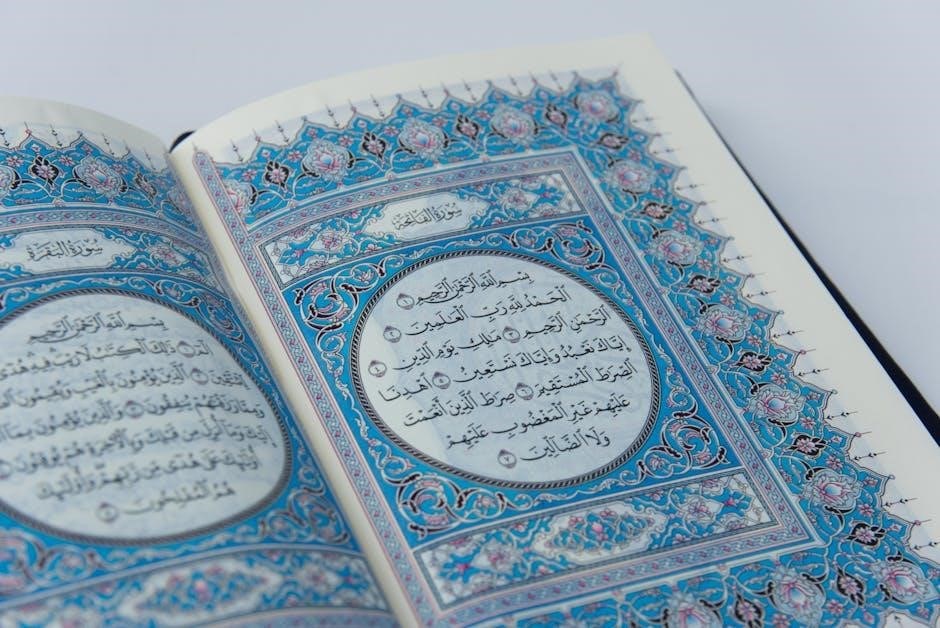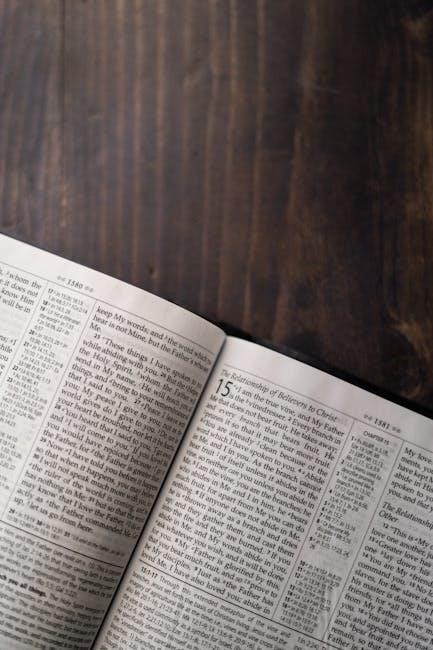when the emperor was divine book pdf

Julie Otsuka’s When the Emperor Was Divine is a poignant novel exploring a Japanese American family’s internment during WWII, blending historical fiction with lyrical prose to evoke the emotional toll of displacement and identity loss.
Overview of the Book
When the Emperor Was Divine by Julie Otsuka is a haunting and powerful debut novel that explores the internment of a Japanese American family during World War II. Set in 1942, the story follows a mother and her two children as they are forcibly relocated from their home in Berkeley to an internment camp in the Utah desert. Told through multiple perspectives and five distinct sections, the novel captures the emotional toll of displacement, loss of identity, and the resilience of a family torn apart by wartime injustice. Otsuka’s prose is both poetic and restrained, offering a poignant portrayal of a shameful chapter in American history.
Importance of the Topic
When the Emperor Was Divine is a significant work that sheds light on the lesser-known history of Japanese American internment during World War II. By focusing on the emotional and psychological impact on a single family, the novel humanizes a painful chapter in American history. Its exploration of themes like identity, citizenship, and resilience resonates deeply, offering readers a personal connection to the broader historical context. The book’s ability to balance poetic prose with harsh realities makes it a vital resource for understanding the injustices of the past and their relevance to contemporary discussions on race, identity, and justice.
Structure of the Article
This article delves into Julie Otsuka’s When the Emperor Was Divine, examining its historical context, narrative style, and thematic depth. The analysis begins with an introduction to the book, followed by sections on the author’s background, the novel’s structure, and its critical reception. Each part is designed to provide a comprehensive understanding of the work, highlighting its significance in addressing the internment of Japanese Americans during WWII. By exploring these elements, the article offers a detailed exploration of the novel’s literary merit and its lasting impact on contemporary discussions of identity, justice, and resilience.
Background of the Author
Julie Otsuka, born in California, is a celebrated author known for her lyrical prose and exploration of identity. Her works include the acclaimed novels When the Emperor Was Divine and The Buddha in the Attic, both of which have garnered significant literary recognition.
Julie Otsuka: Biography and Literary Career
Julie Otsuka, born in 1962 in California, is an American author of Japanese descent. She gained prominence with her debut novel, When the Emperor Was Divine (2002), which earned the Asian American Literary Award and the ALA Alex Award. Her subsequent works, such as The Buddha in the Attic (2011), further solidified her reputation, winning the PEN/Faulkner Award. Otsuka’s writing often explores themes of identity, displacement, and the immigrant experience, blending historical narratives with poetic prose. Her work is celebrated for its emotional depth and subtle storytelling, offering profound insights into the human condition.
Awards and Recognition for “When the Emperor Was Divine”
Julie Otsuka’s debut novel, When the Emperor Was Divine, received critical acclaim and notable awards. It won the 2003 Asian American Literary Award and the 2003 American Library Association Alex Award; The novel’s poignant portrayal of a Japanese American family’s internment during WWII resonated deeply with readers and critics alike. Otsuka’s work also earned her a Guggenheim Fellowship, further cementing her literary reputation. These recognitions highlight the novel’s emotional depth and historical significance, solidifying its place in contemporary American literature. The awards underscore the novel’s ability to evoke a shameful episode in history with both immediacy and restraint.
Otsuka’s Writing Style and Themes
Julie Otsuka’s writing style in When the Emperor Was Divine is marked by deceptively tranquil prose, which belies the emotional depth and historical weight of the narrative. Her use of poetic detail and restrained modulation creates a haunting evocation of the Japanese American internment experience. The novel explores themes of identity, displacement, and resilience, delving into the psychological toll of racism and xenophobia. Otsuka’s choice of multiple perspectives and limited third-person narration adds complexity, while her modesty in depicting suffering underscores the dignity of the characters. The novel’s structure, divided into five sections, reflects the fragmented lives of the family, enhancing the emotional impact of their journey. Otsuka’s work is a masterful blend of lyricism and restraint, making the historical injustice of internment both deeply personal and universally relatable.

Historical Context of the Book
When the Emperor Was Divine is set during World War II, focusing on the forced relocation of Japanese Americans to internment camps in the Utah desert following Executive Order 9066. The novel vividly portrays the harsh conditions and emotional turmoil faced by these families, highlighting the loss of rights and identity under wartime hysteria. Otsuka’s depiction provides a powerful lens through which to examine this shameful chapter in American history and its lasting impact on Japanese American communities.
Japanese American Internment During World War II
During WWII, over 120,000 Japanese Americans were forcibly relocated to internment camps under Executive Order 9066. The novel When the Emperor Was Divine captures this experience, detailing the abrupt uprooting of a family from Berkeley to a Utah desert camp. The internment camps were characterized by harsh living conditions, barbed-wire fences, and a pervasive sense of fear and uncertainty. Families faced the loss of their homes, businesses, and citizenship rights, enduring psychological trauma and economic hardship. The novel highlights the resilience of these individuals as they navigated a reality shaped by racism and xenophobia, their stories offering a haunting reminder of this dark period in American history.
Executive Order 9066 and Its Impact
Executive Order 9066, signed by President Franklin D. Roosevelt in 1942, authorized the forced relocation of Japanese Americans to internment camps. This order, justified as a national security measure, led to the displacement of over 120,000 individuals, including the family portrayed in When the Emperor Was Divine. The order effectively stripped Japanese Americans of their rights, property, and citizenship, forcing them into harsh, isolated camps. The novel vividly captures the psychological and emotional toll of this injustice, depicting the loss of identity, the fragmentation of families, and the enduring scars of systemic racism. It remains a powerful critique of this dark chapter in American history.
The Utah Desert Internment Camps
The Utah desert internment camps, as depicted in When the Emperor Was Divine, were stark and unforgiving environments where Japanese Americans were forcibly relocated. Harsh conditions, including extreme heat, limited resources, and cramped living quarters, defined life in these camps. The novel vividly portrays the emotional and physical struggles of the family, highlighting the dehumanizing aspects of their confinement. The camps symbolized the loss of freedom and dignity, as families endured separation, uncertainty, and the erosion of their identity. These settings serve as a haunting backdrop to the story, underscoring the resilience and quiet strength of those who endured this unjust chapter of history.

Narrative Structure and Style
When the Emperor Was Divine employs a multi-perspective narrative, with five distinct sections offering insights into the family’s experiences through different viewpoints, enhancing emotional depth and complexity.
Multiple Perspectives and Limited Third-Person Narration
Julie Otsuka’s When the Emperor Was Divine masterfully employs multiple perspectives, shifting between family members to convey the complexities of their experiences. The limited third-person narration creates an intimate yet detached tone, allowing readers to connect deeply with each character while maintaining a broader view of their collective trauma. The novel’s structure, divided into five sections, explores the viewpoints of the mother, daughter, son, and father, each offering a unique lens on the family’s internment. This narrative choice underscores the fragmented nature of their lives, while the restrained prose avoids melodrama, emphasizing the quiet resilience and emotional depth of their story.
Five Sections of the Novel: A Closer Look
The novel is structured into five distinct sections, each offering a nuanced exploration of the family’s journey. The first section introduces the mother’s perspective, detailing her orderly preparation for departure. The second shifts to the children’s viewpoints, capturing their confusion and fear. The third section delves into the father’s absence and his eventual internment. The fourth explores the family’s life in the camp, highlighting their struggles and resilience. The final section reflects on their return home, grappling with the lasting impact of their experiences. This structure provides a comprehensive view of the family’s ordeal, emphasizing the emotional and psychological layers of their story.
Symbolism and Imagery in the Book
Julie Otsuka’s When the Emperor Was Divine richly employs symbolism and imagery to convey the emotional and psychological depth of the Japanese American internment experience. The Utah desert camp, with its barbed-wire fences and sparse barracks, symbolizes confinement and the erosion of freedom. The mother’s meticulous packing and her new glasses represent clarity amidst chaos, while the father’s absence embodies the fragmented family and lost identity. Vivid imagery, such as the smell of horse meat and the monotony of camp life, underscores the harsh realities. The empty, vandalized home upon their return serves as a poignant symbol of irreparable loss and shattered lives.

Themes Explored in the Novel
When the Emperor Was Divine delves into themes of racism, identity loss, family resilience, and psychological trauma, vividly portraying the impact of internment on Japanese Americans during WWII.
Racism and Xenophobia in America
Julie Otsuka’s When the Emperor Was Divine vividly portrays the devastating impact of racism and xenophobia on a Japanese American family during WWII. The novel highlights how Japanese Americans, despite their loyalty, were reclassified as “enemy aliens” due to their heritage. The family’s forced relocation to an internment camp in Utah underscores the broader societal prejudice that fueled such policies. Otsuka’s narrative captures the emotional toll of being treated as “the other,” as the characters grapple with displacement, loss of identity, and the psychological scars of discrimination. The novel serves as a haunting reminder of America’s history of xenophobia and its lasting effects on marginalized communities.
Loss of Identity and Citizenship
When the Emperor Was Divine examines the erasure of identity and citizenship experienced by Japanese Americans during WWII. The novel’s characters, stripped of their names and individuality, symbolize the broader loss of cultural and personal identity. The mother, daughter, and son face a disconnection from their heritage and American life, reflecting the tension of dual identity. Otsuka illustrates how internment camps and societal exclusion led to a fractured sense of belonging. The family’s struggle to reclaim their identity post-war highlights the lasting impact of forced assimilation and the psychological scars of losing one’s sense of self and citizenship.
Family Dynamics and Resilience
In When the Emperor Was Divine, the family’s resilience is tested as they navigate the harsh realities of internment. The mother emerges as a pillar of strength, maintaining hope and stability despite the chaos. The daughter and son struggle with their new environment, their bond with each other and their parents fraying under the pressure. Yet, through shared hardships, they find moments of quiet unity. The novel highlights how the family’s resilience is not in grand gestures but in small acts of love and support that sustain them through their ordeal. This quiet strength underscores their humanity and survival.
Psychological Impact of Internment
The internment experience in When the Emperor Was Divine leaves profound psychological scars on the family. The son’s confusion and mental harm are evident as he struggles to cope with his father’s absence, often mistaking other men for him. The monotony of camp life erodes their sense of time and identity, while the constant fear of the unknown exacerbates anxiety. The father’s eventual return, broken by interrogation and abuse, further traumatizes the family. The mother’s withdrawal into memories of home highlights her emotional detachment as a coping mechanism. The novel vividly portrays how the trauma of internment lingers long after their physical release, shaping their lives forever.

Literary Style and Prose
Julie Otsuka’s prose in When the Emperor Was Divine is deceptively tranquil, with poetic detail and restrained emotion, creating a powerful narrative of suffering and resilience.
Deceptively Tranquil Prose and Its Effect
Julie Otsuka’s prose in When the Emperor Was Divine is marked by its deceptive tranquility, which contrasts sharply with the harsh realities of internment. Her calm, measured language creates a sense of detachment, mirroring the characters’ emotional numbing. This stylistic choice amplifies the novel’s emotional impact, as the understated narrative underscores the gravity of the family’s experiences. The tranquil tone also highlights the resilience and quiet strength of the characters, making the reader reflect on the deeper psychological and emotional toll of their ordeal. This unique prose style enhances the novel’s haunting evocation of a shameful historical episode.
Poetic Detail and Emotional Texture
Julie Otsuka’s When the Emperor Was Divine is rich in poetic detail, weaving vivid imagery with subtle emotional depth. The novel’s sparse yet evocative language paints a haunting portrait of life in the internment camps, capturing the monotony and despair through sensory descriptions like the “smell of liver” and “clang of bells.” These details evoke a powerful emotional texture, drawing readers into the characters’ struggles with loss, identity, and resilience. Otsuka’s poetic prose transforms the historical narrative into a deeply personal and moving experience, allowing readers to connect with the family’s quiet strength and enduring humanity amidst hardship.
Restraint and Modesty in Depicting Suffering
Julie Otsuka’s When the Emperor Was Divine approaches the depiction of suffering with remarkable restraint and modesty. Rather than resorting to melodrama, the novel conveys the pain and injustice of internment through subtle, understated prose. The father’s silent trauma and the mother’s quiet resilience are portrayed without exaggeration, allowing the reader to infer the depth of their emotional wounds. This understated approach underscores the dignity of the characters and amplifies the novel’s emotional impact, making the atrocities of the internment camps feel both deeply personal and universally resonant. Otsuka’s restraint transforms the narrative into a powerful testament to endurance and grace under duress.
Character Analysis
The novel portrays a Japanese American family’s struggles through unnamed characters, emphasizing universal experiences. The mother embodies quiet strength, the daughter grapples with identity, and the son faces confusion and trauma, while the father symbolizes loss and silent suffering.
The Mother: A Pillar of Strength
The mother in Julie Otsuka’s When the Emperor Was Divine exemplifies resilience and quiet strength. She guides her family through the upheaval of internment, maintaining dignity despite the harsh conditions. Her role as the emotional anchor is evident as she navigates the challenges of displacement, ensuring her children’s well-being while coping with her husband’s absence. The mother’s ability to adapt and sustain hope reflects her unwavering commitment to her family, making her a central figure in their survival and enduring legacy.
The Daughter: Struggles with Identity
The daughter in When the Emperor Was Divine grapples with a fractured identity, torn between her Japanese heritage and American upbringing. Her experiences in the internment camp exacerbate this internal conflict, as she faces displacement and cultural erasure. Otsuka vividly portrays her emotional turmoil, from moments of uncertainty and fear to her fantasies of blending in with white America. The daughter’s struggles reflect the broader theme of identity loss among Japanese Americans during WWII, as she navigates the complexities of belonging in a society that rejects her. Her journey underscores the lasting psychological impact of internment on young minds.
The Son: Confusion and Mental Harm
The son in When the Emperor Was Divine experiences profound confusion and mental harm due to his father’s absence and the harsh realities of internment. Initially, he mistakes other men in the camp for his father, reflecting his fragile emotional state. The camp’s monotony and dehumanizing conditions exacerbate his confusion, as he struggles to understand the injustice. Otsuka poignantly captures his mental toll through his fixation on his father’s absence and the camp’s bleak routines. The son’s journey highlights the psychological scars left by the internment, as he grapples with identity and belonging in a world that has stripped him of stability and security.
The Father: A Symbol of Loss and Trauma
The father in When the Emperor Was Divine serves as a poignant symbol of loss and trauma, his absence deeply felt throughout the novel. Taken by the FBI before the family’s internment, he becomes a silent yet powerful figure, his fate uncertain. His eventual return, broken by interrogation and abuse, underscores the irreversible harm caused by the internment. The father’s character embodies the broader suffering of Japanese Americans, their dignity and identity eroded by injustice. His presence, both in absence and return, highlights the lasting scars of displacement and the shattering of familial normalcy, leaving an indelible mark on the family’s psyche.

Critical Reception and Reviews
When the Emperor Was Divine has been hailed as a “precise, understated gem,” praised for its emotional depth and poetic detail. Critics and readers alike commend its powerful portrayal of injustice, with many noting its restraint in depicting suffering, making it a haunting yet resonant read.
Positive Feedback and Praise
When the Emperor Was Divine has received widespread acclaim for its poignant portrayal of a Japanese American family’s internment during WWII. Critics praise its deceptively tranquil prose, poetic detail, and emotional depth. The novel’s ability to evoke the shame and injustice of this historical episode resonates deeply with readers. Many have commended Otsuka’s restraint in depicting suffering, which adds to the book’s haunting yet resonant quality. The structured narrative, divided into five sections, offers a powerful exploration of identity, loss, and resilience. This masterpiece has been celebrated as a significant contribution to historical fiction, earning it numerous awards and a lasting place in literary discussions.
Critical Insights and Analysis
Critics highlight When the Emperor Was Divine’s nuanced exploration of identity, loss, and resilience through its structured narrative. The novel’s use of multiple perspectives and limited third-person narration provides a layered understanding of the family’s experience. Otsuka’s prose is praised for its restraint, allowing the emotional weight of the story to emerge naturally. The depiction of the Utah internment camp and the psychological toll on the characters underscores the historical injustices faced by Japanese Americans. The novel’s ability to balance poetic detail with a matter-of-fact tone enhances its emotional impact, making it a compelling and thought-provoking read on a shameful chapter of American history.
Comparison with Other Works by Otsuka
Julie Otsuka’s When the Emperor Was Divine shares thematic similarities with her later works, such as The Buddha in the Attic, in its exploration of identity and displacement. Both novels employ a fragmented narrative style, blending individual voices to create a collective story. While The Buddha in the Attic focuses on the experiences of Japanese picture brides, When the Emperor Was Divine delves into the internment of Japanese Americans during WWII. Otsuka’s prose remains characteristically sparse yet evocative, allowing the emotional depth of her characters’ struggles to resonate deeply. This consistency in style and thematic focus solidifies her reputation as a masterful storyteller of the Japanese American experience.

Availability of the Book in PDF Format
When the Emperor Was Divine is available in PDF format, DRM-free, ensuring compatibility across various digital platforms for easy access to this powerful historical novel.
Downloading and Reading Options
Readers can access When the Emperor Was Divine in PDF format, available for download from various platforms, including Amazon and the Internet Archive. The DRM-free version ensures compatibility with devices supporting EPUB or PDF formats. The book can be read on e-readers, tablets, or smartphones, offering flexibility for readers. Many platforms provide free access, while others offer paid options with additional features like audiobook bundles. The PDF version is lightweight, making it easy to store and share. Online readers also allow direct access without downloads. This accessibility ensures Julie Otsuka’s powerful narrative reaches a wide audience, maintaining its emotional impact in digital form.
DRM-Free and Watermarked Versions
The PDF version of When the Emperor Was Divine is available as a DRM-free download, allowing readers to access the book without restrictions on sharing or device transfers. The file is watermarked to ensure copyright protection while maintaining reader flexibility. This version can be easily downloaded from platforms like the Internet Archive or purchased from Amazon, offering a seamless reading experience across multiple devices. The absence of DRM ensures compatibility with various e-readers and apps, making it accessible to a broad audience. The watermarked version balances piracy prevention with reader convenience, preserving the book’s integrity while enhancing accessibility for fans of Julie Otsuka’s work.
Compatibility with Digital Platforms
The PDF version of When the Emperor Was Divine ensures seamless compatibility across various digital platforms, including e-readers, tablets, and smartphones. Readers can access the book on devices supporting DRM-free formats, such as Kindle, Kobo, and Apple Books, without encountering compatibility issues. The file is optimized for both desktop and mobile viewing, offering a consistent reading experience. Additionally, the EPUB version is widely supported, allowing users to enjoy the novel on multiple devices effortlessly. This flexibility makes it easy for readers to engage with Julie Otsuka’s powerful narrative anywhere, anytime, enhancing accessibility and reader convenience significantly.
When the Emperor Was Divine is a haunting yet powerful exploration of injustice, identity, and resilience, offering a poignant reflection on a shameful chapter of history through its accessible PDF format.
Julie Otsuka’s When the Emperor Was Divine is a powerful novel that explores the internment of a Japanese American family during World War II. The story delves into themes of racism, identity loss, and resilience while maintaining a deceptively tranquil prose style. The novel is structured into five sections, each offering unique perspectives on the family’s experiences in the Utah desert camp. Otsuka’s writing masterfully captures the emotional toll of displacement and the psychological impact of internment. The book is widely praised for its poetic detail and restraint in depicting suffering. Available in DRM-free PDF format, it remains a significant work of historical fiction, offering a haunting reflection on a shameful chapter of American history.
Final Thoughts on the Book’s Significance
When the Emperor Was Divine is a profound exploration of a lesser-known chapter in American history, offering a poignant reflection on identity, resilience, and injustice. Julie Otsuka’s nuanced prose captures the emotional depth of a Japanese American family’s internment during WWII, making the past feel alarmingly relevant. The novel’s restraint in depicting suffering underscores the quiet strength of its characters, while its historical context serves as a reminder of the dangers of prejudice. As a work of historical fiction, it bridges the past and present, urging readers to reflect on the consequences of fear and discrimination. Its significance lies in its ability to evoke empathy and spark crucial conversations about justice and humanity.
Call to Action for Readers
Readers are encouraged to explore Julie Otsuka’s When the Emperor Was Divine to gain insight into a poignant chapter of history. The novel’s powerful narrative offers a compelling look at the experiences of Japanese Americans during WWII. Available in DRM-free PDF format, it ensures accessibility across various digital platforms. Otsuka’s prose is both evocative and restrained, making the story resonate deeply. Readers can find the book online, with options to download or read it directly. This masterpiece is not only a historical account but also a timeless reflection on identity, resilience, and justice, making it a must-read for anyone interested in historical fiction and social justice themes.